Analysis UK Financial Benchmarking news UK & Ireland blog Performance Benchmarking Higher Education 03.12.2024
Etio Parliamentary Roundtable - Financial Sustainability in Higher Education, with UUK
On behalf of the Performance Benchmarking business unit, Etio, in partnership with Universities UK (UUK) hosted a Parliamentary Roundtable on Financial Sustainability in Higher Education. The roundtable discussion was centred around the theme of delivering financial sustainability in higher education and securing the future of universities.
Senior leaders from across higher education and political stakeholders convened at Portcullis House to delve into discussion on the precarious financial state of the Higher Education sector,
explore urgent solutions to the escalating challenges universities are facing, and assess the
critical role of regulatory and government interventions.
With the sector facing significant challenges, the Etio Parliamentary roundtable on financial sustainability in higher education served as an important opportunity for sector leaders to exchange perspectives, in addition to exploring solutions that could address current challenges and support the future of universities.

Nick Pidgeon, Director of Etio Performance Benchmarking.
Nick Pidgeon, Director of Etio Performance Benchmarking hosted the discussion. Etio's Performance Benchmarking business unit has been helping the sector for over 25 years, providing financial performance and student experience insights through evidence and comparative insights, with Nick at the helm.
Nick Pidgeon said: "There are justified feelings of concern within the sector. By 2025/26, 72 percent of UK universities could be spending more money than they have coming in, with a total deficit of £1.6bn forecast across the sector. 75 UK universities are currently making redundancies. The sector needs more money, but we need to do our bit too.”
"It's important to consider how universities are spending money - some of our (Etio Performance Benchmarking) data shows that some of them might not be allocating funds to the right things. We have identified a trend in the data that shows one of the most important aspects for students is employability - especially for international students - but spending on Careers Services doesn’t necessarily reflect this importance."
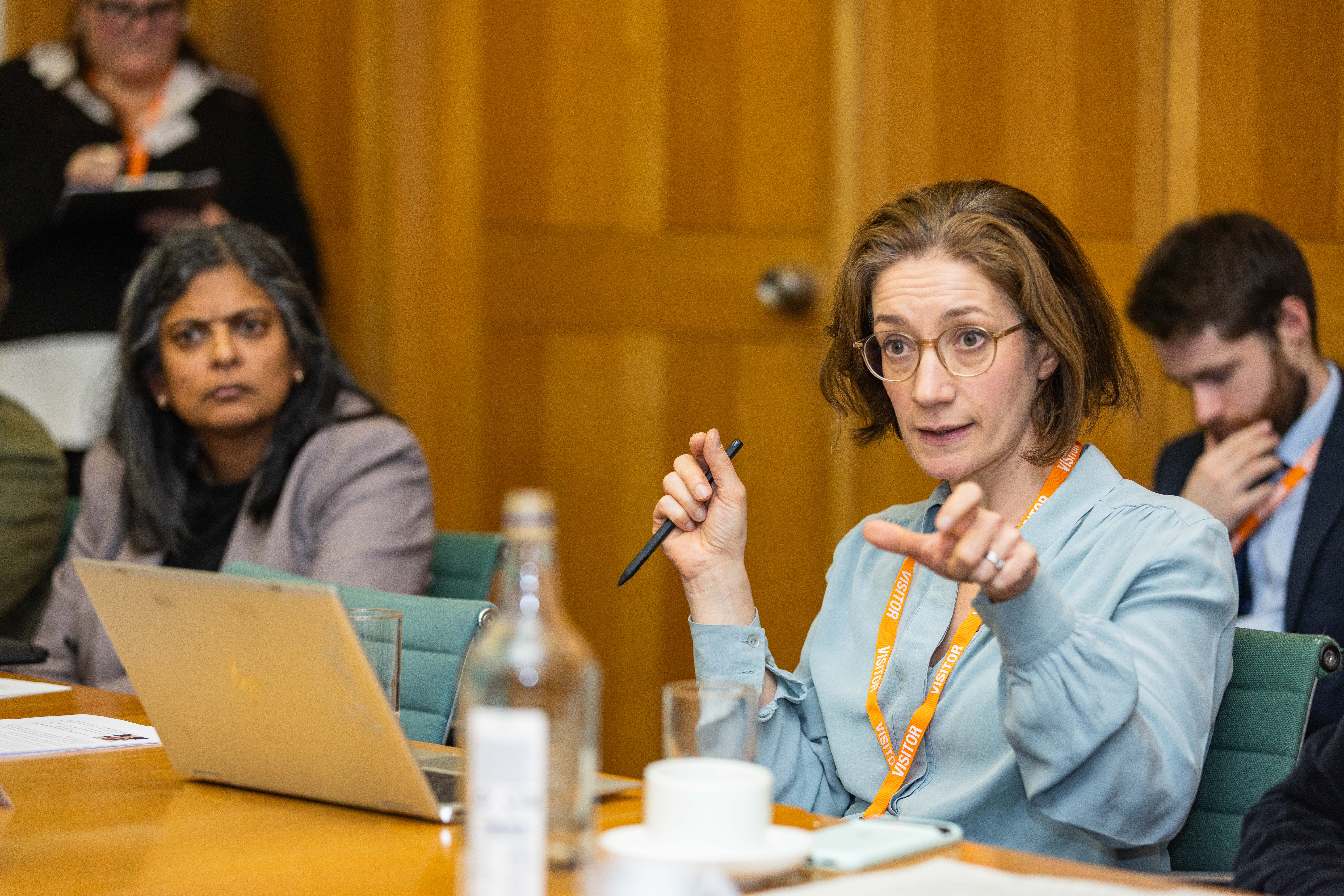
Vivienne Stern MBE – Chief Executive of Universities UK.
The Etio Parliamentary roundtable was chaired by Vivienne Stern MBE, Chief Executive of Universities UK.

Securing extra funding
Speakers discussed the government’s limited power to manoeuvre financially in the current landscape, with other things taking priority for public investment for a multitude of reasons. Some of the action the sector would like the government to take is perceived to be difficult to achieve in these circumstances.
Getting an increase in inflationary uplift in the fee was a significant moment. The next challenge is to normalise the inflationary increase for both maintenance and the fee. Students now (in real terms) are borrowing much less than they were ten years ago. Inflationary increases mean they will be taking out the same loan in real terms as previous generations of students. This also equates to less money available to universities than before.
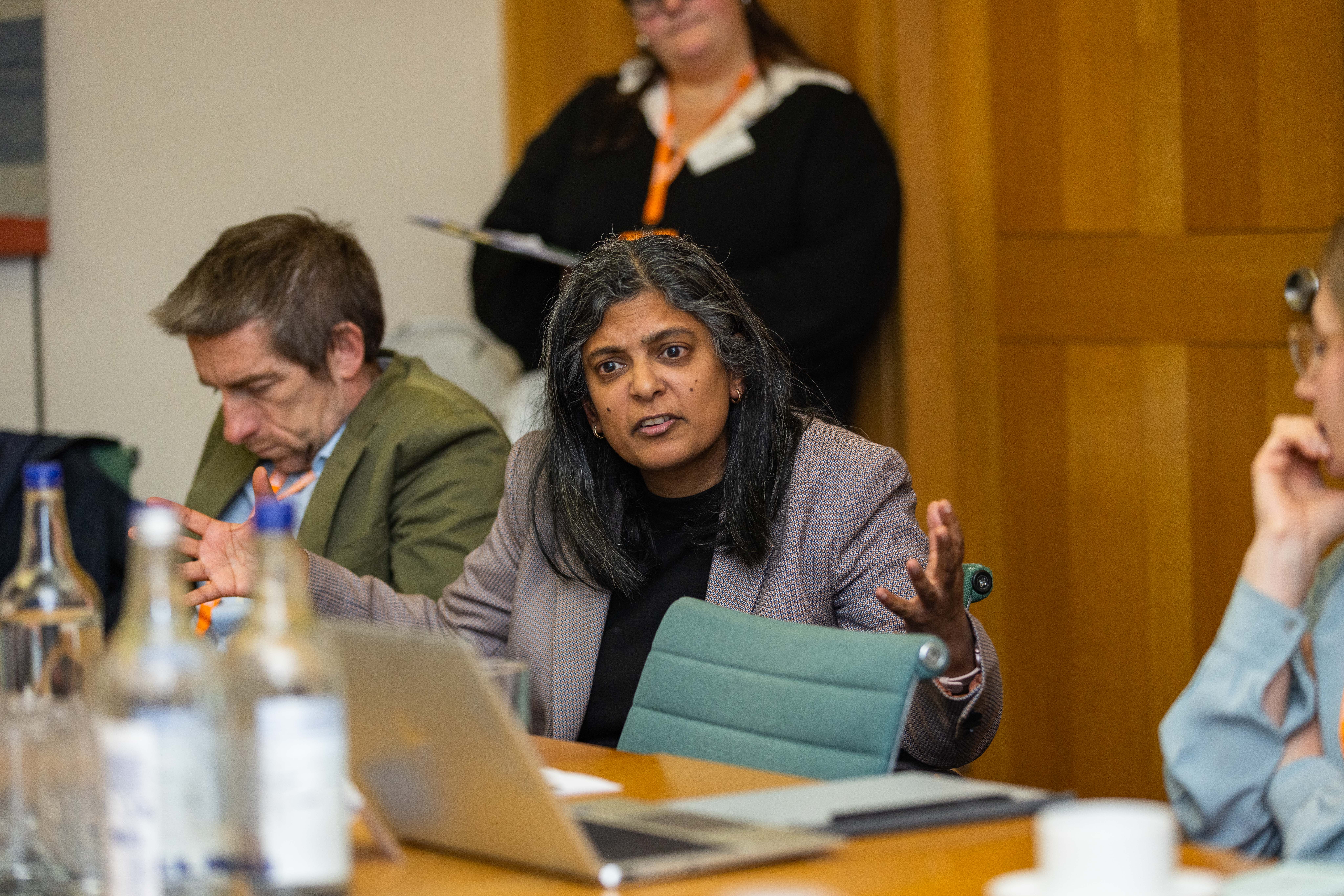
Rupa Huq, MP for Ealing Central & Acton.
The Etio Parliamentary roundtable was kindly sponsored by Rupa Huq, MP for Ealing Central & Acton, who spent six years as a lecturer at Manchester University. In addition to her political career, Rupa Huq was also a lecturer at Kingston University having spent over a decade in the role from 2004 to 2015.

Dr Adam Thompson MP, Labour MP for Erewash.
Dr Adam Thompson MP, Labour MP for Erewash currently serves as Chair of the University All-Party Parliamentary Group, as well as being a member of the Science, Innovation and Technology Select Committee.

Dr Hollie Chandler, Director of Policy for Russell Group.
Instil confidence in the sector
The discussion highlighted the risks posed by the current narrative of crisis within the sector, and how this may put off both international and domestic students, highlighting the importance of building confidence in the sector’s resilience. That there is a careful balance between maintaining political pressure without damaging the sector's reputation.
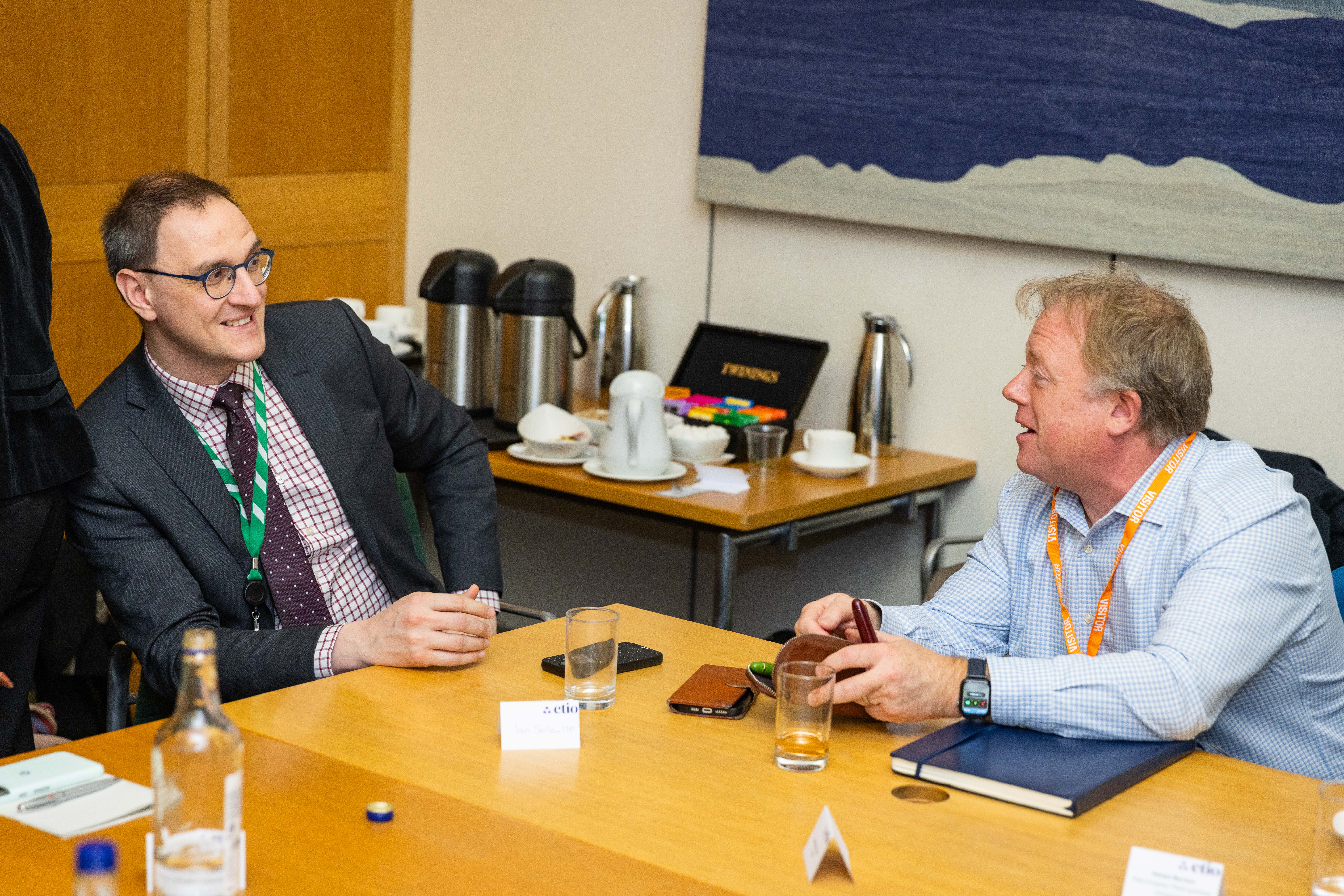
(Left to right) Ian Sollom, Lib Dem spokesperson for higher education and Nick Hillman, Director for the Higher Education Policy Institute
(HEPI).
Identifying areas for collaboration and sharing
The sector leaders discussed the importance of sharing approaches, learnings, and creative solutions for what could be done differently. This can include shared procurement to make the process more efficient, or working closely with regional partners and local organisations to review what services could be shared regionally to drive efficiencies. That said, to bring about big change universities often have to invest upfront. One of the limiting factors regarding digital harmonisation and collaboration is that some institutions that are way behind and need to invest, don't have the resources to get themselves ready to standardise and to share.

George Blake, Policy and Networks Officer at London Higher.
Impact to research
Deficits are growing and a key driver is the cost recovery on research - it is meant to be the case that 80% of costs are recovered from research council grants, but that has reduced over time and is now 69%. That deficit is covered by international students - creating pressure on international student income which for a long time has been subsidising research.

Professor Quintin McKellar CBE, Vice-Chancellor and Chief
Executive for the University of Hertfordshire.
The importance of international students
Something that has been incredibly helpful to universities is the opportunity to attract overseas students to the UK. To some extent, they are now struggling to do that. One of the biggest single factors that impacts overseas students is the graduate route visa - the post-study work visa. There seems to be a commitment from the government to continue that which is hugely helpful to the sector. If the UK falls from 20 percent of the international market, to around 15 percent of the market, we could easily lose a half or a whole percent of GDP - highlighting the scales involved.

Niamh Lamond, Registrar and Chief Operating Officer for Swansea University.
Time needed to embed solutions
Standardisation can be difficult to do in practise, that institutions are complex and have their own unique perspectives and culture. It was suggested that a transformation fund was needed to allow institutions to invest for longer term financial sustainability - something that could be deployed rapidly to help buy institutions extra time. There are institutions that are in danger of running out of cash and it would be helpful if there was some government support to allow them the time to get from A to B.
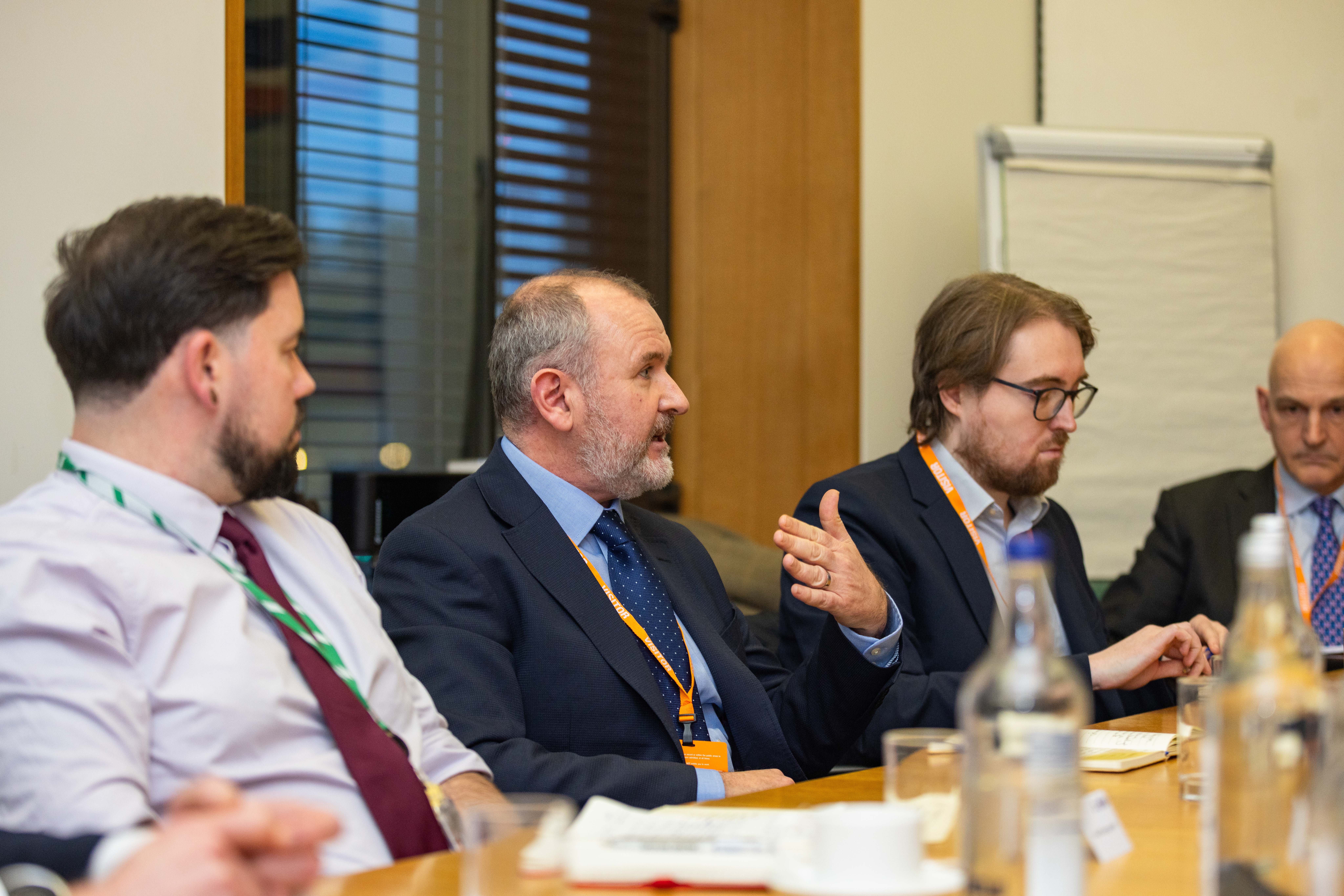
Liam Earney, Managing Director for Higher Education and Research at Jisc.
Impacts to staffing
Universities are very good at flexing - they all try to make cost savings as efficient as possible. Fundamentally, there are two ways that universities can save money. To stop investing in capital and to increase staff student ratios. That is what has been happening. 80 universities around the country have made significant redundancies, some making up to 15% of their staff redundant. If that continues over a long period of time, eventually it buffers, both in terms of quality of education but also the absolute ability to deliver.
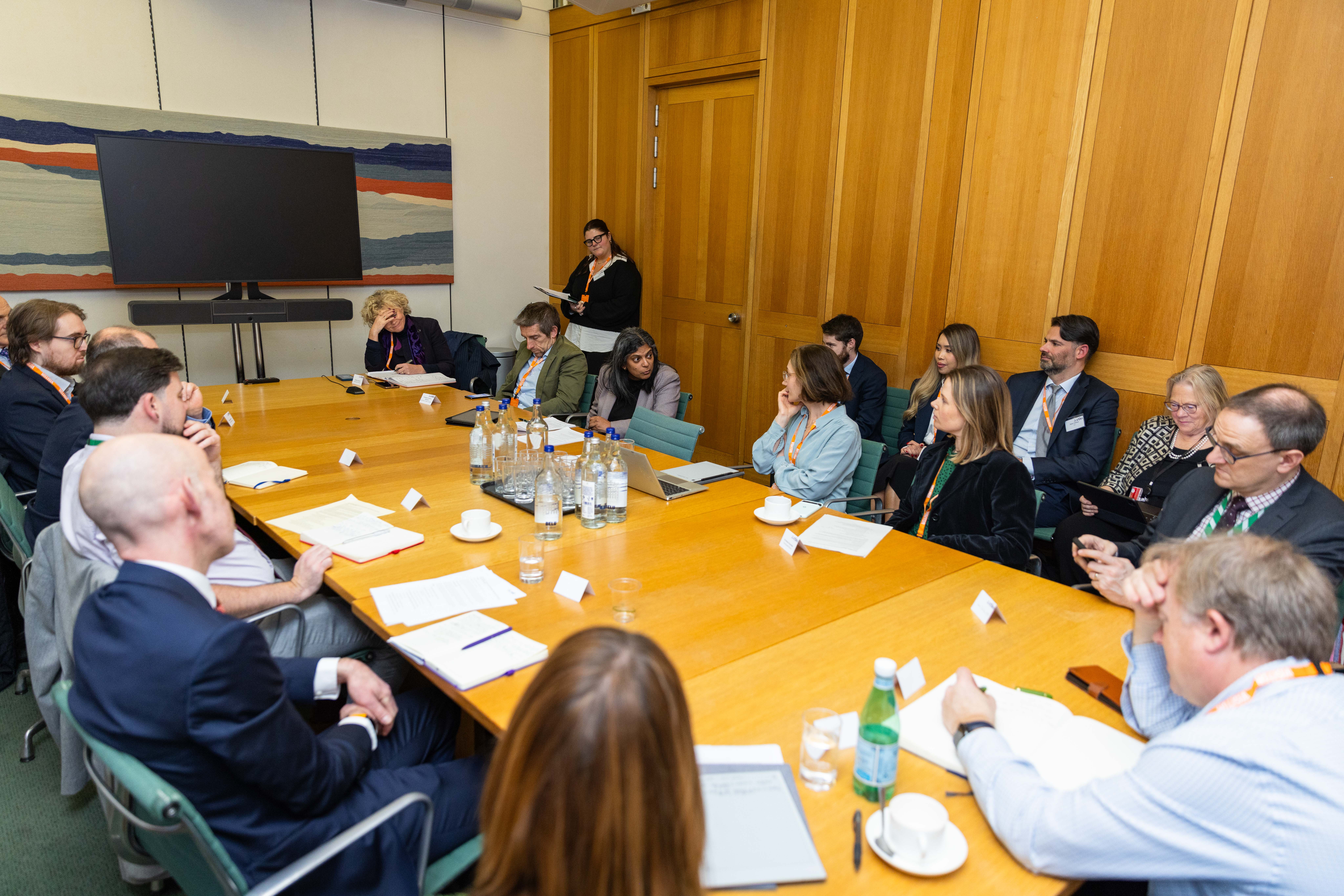
Uncharted territory
No British university has ever gone bust in the history of higher education, so if one does, nobody knows what is going to happen - there is no special regime. There is a level of sector concern around a potential domino effect: the cost of borrowing for universities might go up and all sorts of questions will be asked. The British public may not realise just how important universities are to their localities. There is a breadth of concern within the sector, it is an interesting moment in the life of higher education in this country, which continues to be world-class.

Professor Graeme Atherton, Director of the Centre of Inequality and Levelling Up (CELUP) at the University of West London.
An ongoing sector conversation
The room was very much in agreement that the Etio Parliamentary roundtable on financial sustainability in higher education was just the start of a wider sector conversation. The discussion made clear the importance of collaboration, financial support from the government, and rapid mobilisation of support rapidly were required as a priority.

Helen Barton, Director of Strategic Planning and Operations
at Manchester Metropolitan University.

Dame Ann Limb, British educationalist and philanthropist.

(Left to right) Arianna Robertson, Account Executive at PLMR; Ben Farmer, Account Manager at PLMR; Robin Hallows, Head of Surveys, Etio; Nick Pidgeon, Director of Performance Benchmarking, Etio; Keyta Hawkins, UK Policy and Public Affairs Manager, Etio.
